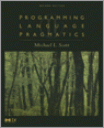Thanks to the book "Programming Language Pragmatics" 
I'm beginning to appreciate Ruby's different notation for exception handling.
A sample:
begin value = 7 / 0 rescue print "Something went wrong! This is an error" end
The code above is to catch an exception. (In Java or C++ you would use try and catch)
Ruby also has got try and catch, but this isn't used for exception handling. It is used for implementing "Multi Level Returns".
A sample:
def search( name ) # .. some fancy code here .. if filename.contains( name ) throw :found_it, filename end result = catch :found_it do search "one" search "two" search "three" false end
In the sample above, result will be filled with the found filename. This can be
with the keyword "one", "two" or "three". If nothing is found result is filled with false. (the last value in the catch block)
I don't think I need the catch construct very much, but it's a nice feature!